Interview with Adventure Traveler Norio Sasaki
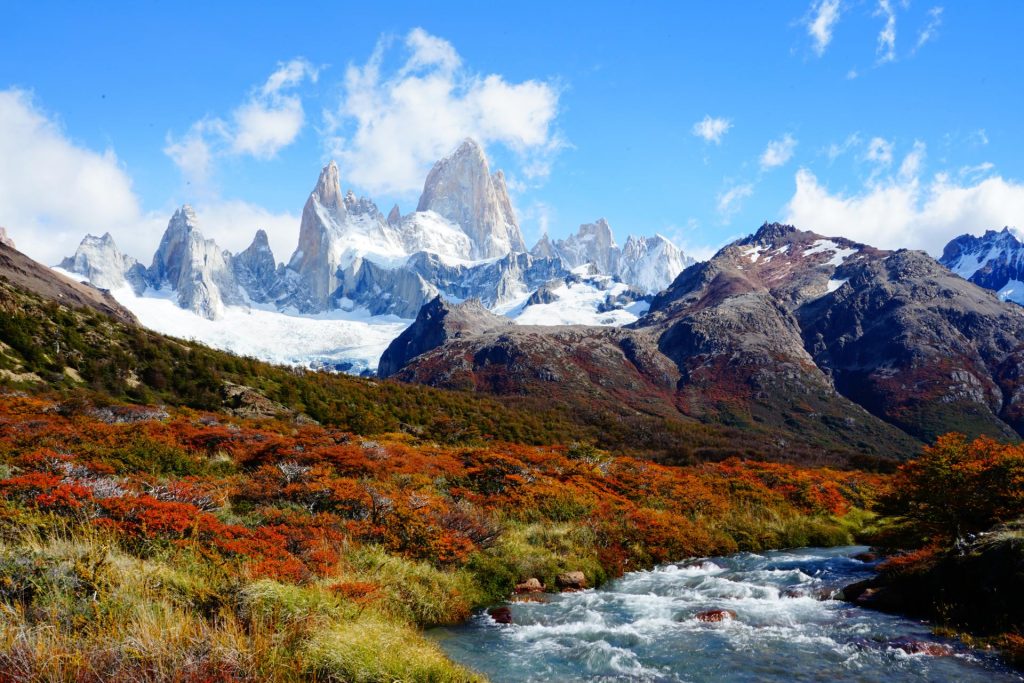
Adventure traveler and photographer Norio Sasaki is out to push his limits on solo travel. His expeditions have taken him from Prudhoe Bay, at the tip of North America, to “the end of the world” at Ushuaia, the southernmost tip of South America. He is a self-proclaimed fuukei (landscape) hunter, walking for miles across every type of terrain and weather, dragging along his nearly 80-kilogram bicycle-drawn cart—with a big smile on his face. Sasaki shares his unusual ways of travel and what adventure travel means to him.
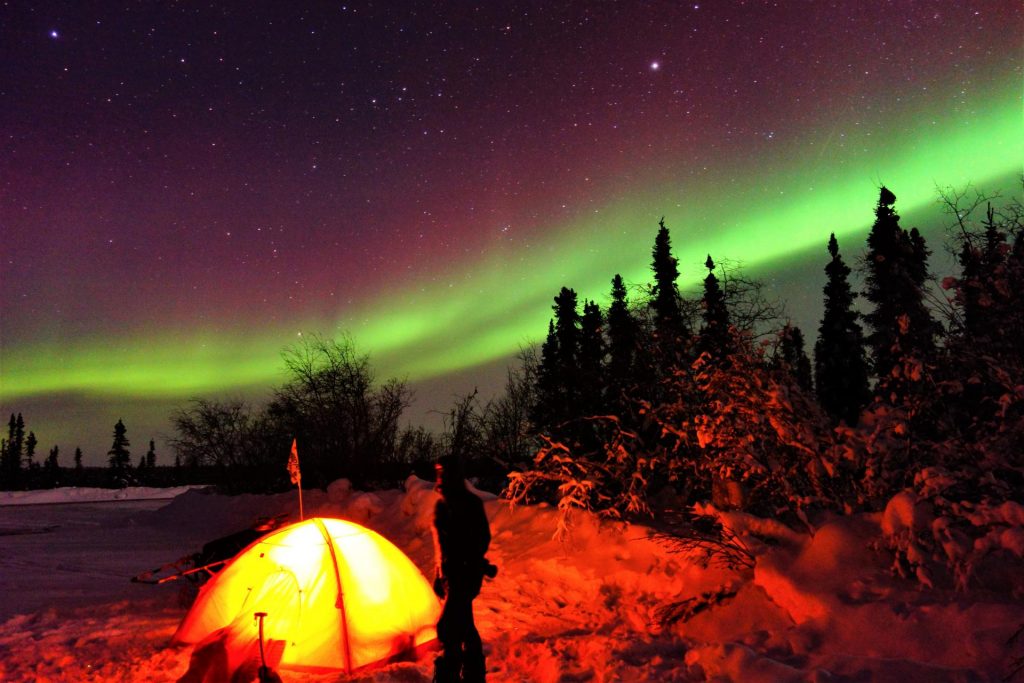
What got you started in adventure travel?
I used to be in the Japan Maritime Self-Defense Force, traveling around Japan and overseas. The biggest thing I discovered is if you have tairyoku (endurance) and konjo (guts), you can set your mind to do anything. I learned from my mistakes, gained a lot of experience taking on jobs such as lifesaving in Okinawa, ocean guiding, ski patrolling and outdoor guiding.
When I was 25-years-old, my mother sent me a book by Naomi Uemura, a famous Japanese adventurer known for his solo exploits. Uemura was the first person to reach the North Pole solo, raft the Amazon solo and climb Denali solo. The book really inspired me to question how I think about travel. One of the major benefits of travel is returning with lessons learned, not just fun memories. Humans learn through hardship and endurance, and adventure travel helps you mature.
We don’t know when we will die; I wanted to live a life with no regrets, so I set out on my own adventure. I also wanted to build up strength as I spent most of my career protecting people’s lives.
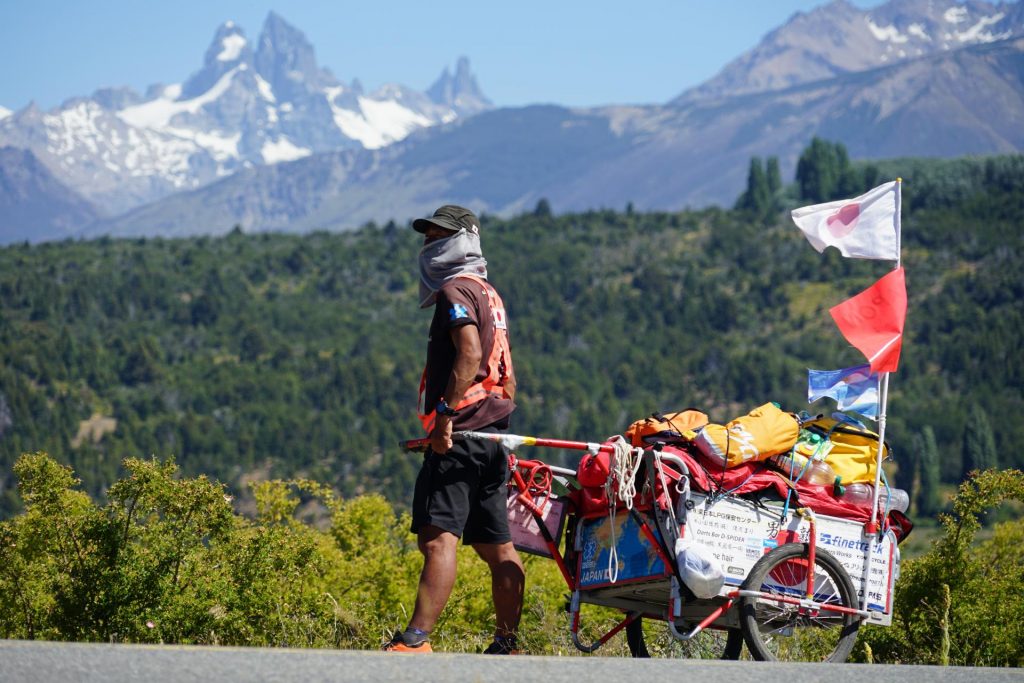
You are often seen traveling with a bicycle-drawn cart.
In my teens, I cycled around various parts of Japan. As an adult, I wanted to rely on human-powered motion, so I started off with cycling. I also wanted to be as self sufficient as possible, which meant bringing my own tent, food, supplies and more. That’s when I added a custom-made riyaka—a bicycle-drawn cart. Literally translated, it means “rear car.”
Was it custom made for your travels?
Yes, the cart uses durable, Tannus no-puncture tires from South Korea. I worked with a bicycle shop to put it together. It’s made out of aluminum so it’s light and I can carry it on the plane.
What was your first destination?
I spent two years traveling Japan, then wanted to go somewhere I couldn’t speak Japanese. I boarded a ferry from Yamaguchi Prefecture to South Korea. One experience that stood out to me was when I was going to ascend a mountain with my riyaka. This man tried to stop me saying it was too difficult, but I tried as much as I could to convey my passion. We weren’t speaking the same language, but he could see that and decided to support me, and even brought me food.
After that trip, I wanted to challenge myself further so I headed to the deserts of Australia. It was physically draining as I pushed myself in extreme heat and harsh conditions. I didn’t have reception for three weeks so there was no way for me to contact anyone. I spent lots of time talking to Toramaru, which is what I had named my riyaka, while listening to English conversation podcasts.
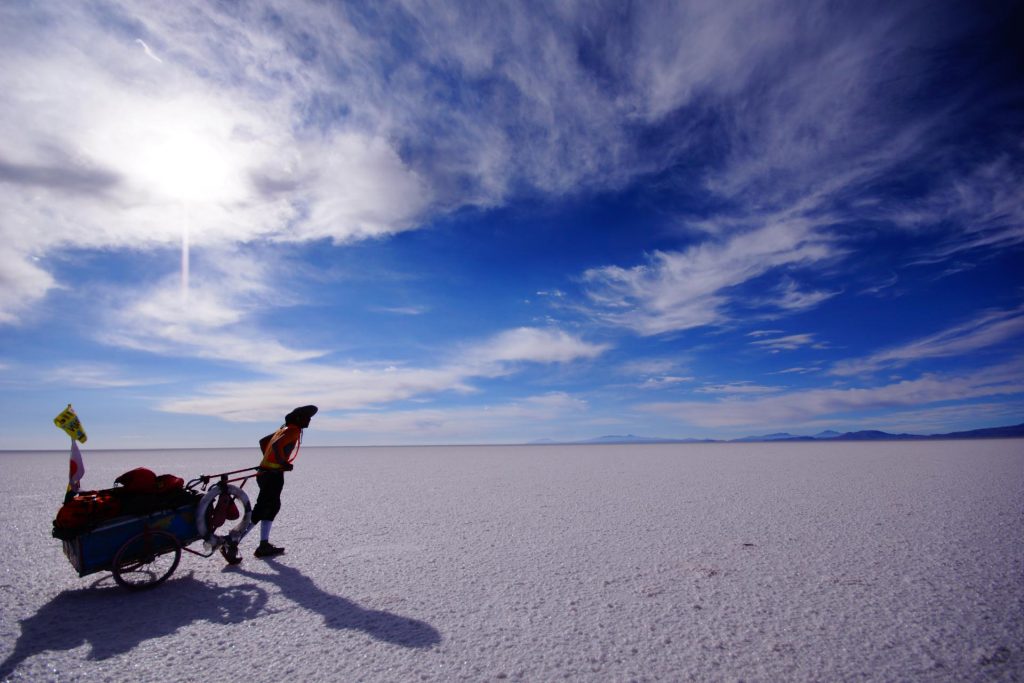
When the 2011 Tohoku earthquake happened, I immediately went to volunteer. It was a grim experience as I saw firsthand the effects of the triple disaster: pulling bodies out of the water, the nuclear waste that was leaking out and people being evacuated. I also photographed this journey and wanted to raise awareness about Tohoku while seeing what other countries were using for energy.
The next few years were spent traveling to Taiwan and New Zealand and then achieving my personal goal—to go from the top of North America to the bottom of South America. I would walk 50 kilometers in the summer and 40 in winter. Thankfully I achieved this before the pandemic in May 2019. Along the way, I met many people who were interested in what I was doing and my riyaka, and I could share with them my experiences about Tohoku.
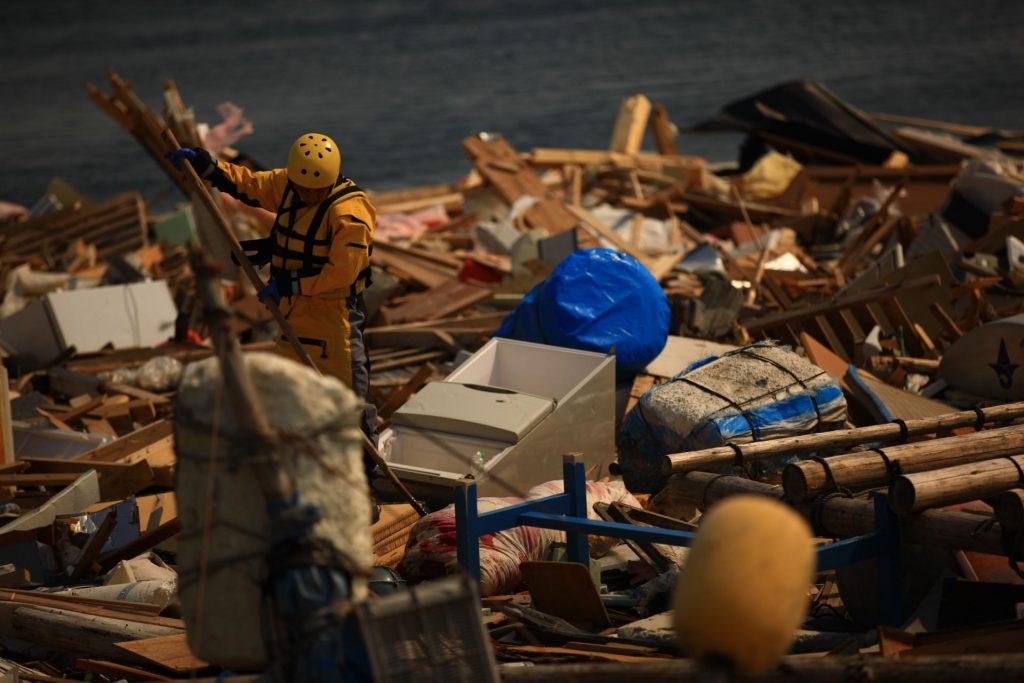
What are a few of your favorite landscapes?
Definitely the famous Uyuni Salt Flats in Bolivia. I also enjoyed the Yukon with its tundras, auroras and autumn foliage. In South America, the high-altitude lakes in the Andes Range were stunning, particularly in Huaraz, Peru. Monte Fitz Roy in Patagonia was also breathtaking.
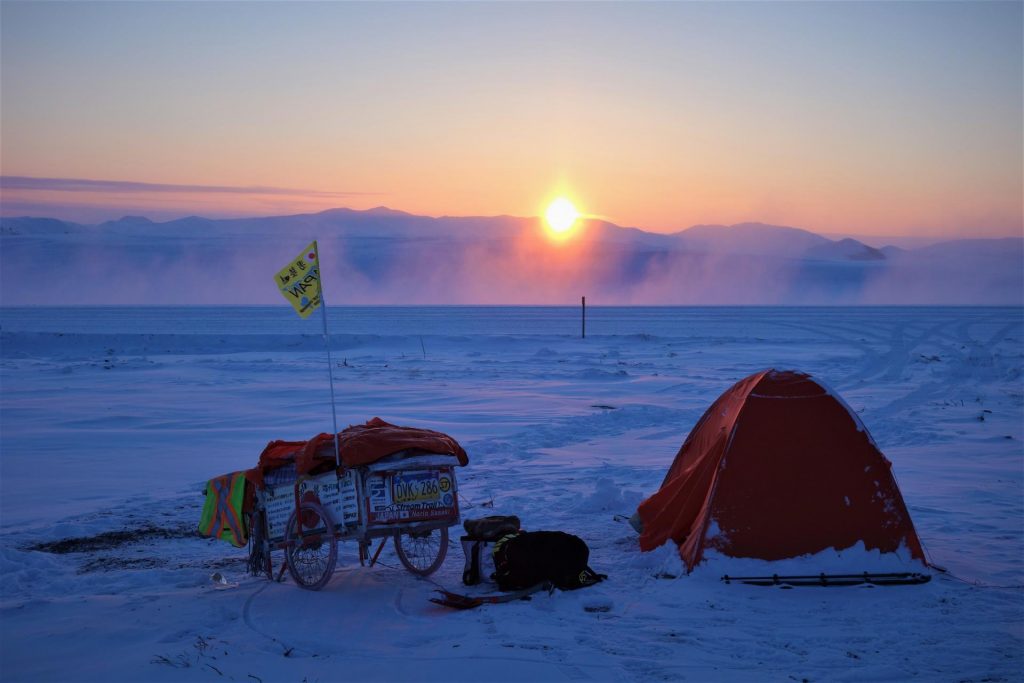
Do you work while traveling?
Sometimes I write or submit photographs from my travels, but mostly I travel as budget-friendly as possible, work odd jobs where I can and save up, then go on to my next destination.
I also have sponsors who support me, like Streamtrail. They supply me with their durable, waterproof dry bags. They have protected my food and supplies from nosy grizzly bears while I was traveling through North America. I saw many but thankfully they couldn’t smell the food as it was really packed in there.
Have your travels changed with the pandemic slowing down international travel?
For sure. I’ve temporarily moved away from the riyaka and been exploring the waters surrounding Japan with my stand-up paddleboard. In my previous jobs as an ocean guide and lifesaver, plus my time in the defense force, I had to learn ocean navigational skills.
What are some challenges you face when traveling by SUP?
This goes for all solo travel, but you have to be responsible not only for yourself but also how you represent your community. Because stand-up paddling is generally an “easy” activity, there are many people who get stranded or hurt. SUP boards are very big, long, buoyant and light, so they are prone to getting caught by currents and it’s easy to lose your balance especially during strong wind. Mine is inflatable making it easier for it to get swept away.
SUPs are still relatively new in Japan and can’t carry as much on board. I try to avoid risk by planning, because it would be meiwaku (a bother) to other paddlers in Japan’s budding SUP community if I am irresponsible and get hurt or stranded.
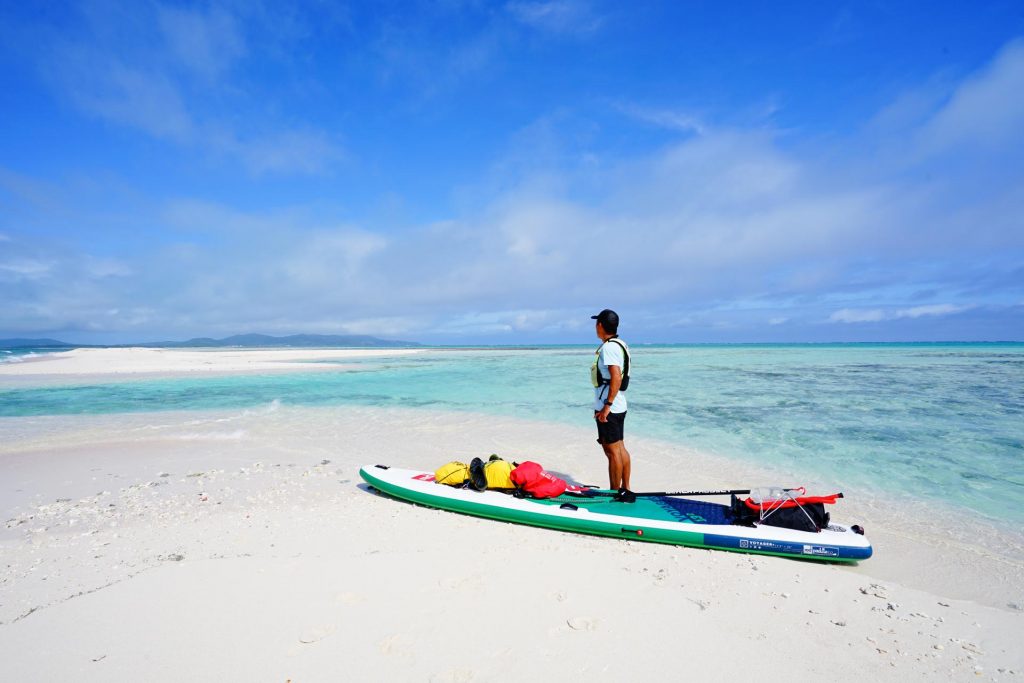
While I’m at sea, all I’m thinking about is if the winds or currents change and getting to my destination safely before nightfall. If the wind is propelling you forward, that’s great, but if it’s working against you then you have to make yourself as small as possible and paddle hard. I use my smartphone’s GPS which works without reception, and also rely on wind direction and the clouds. At most, it’s taken me a full day to get to my destination, which means eating on board, and yes, going to the bathroom.
I avoid going to high-traffic areas, for example major ports, fishing or ferry routes, and waters near navy or defense force bases.
What’s in your bag?
I have to live as cheaply as possible, so I need to pack and make smart purchases. Food, clothes, sleeping bag, tent, solar panel to charge my phone and something announce where I am, whether that’s a whistle, rescue mirror, SOS reflection sign or smoke bomb.
What are some of your recent SUP expeditions?
Last winter, I visited the Shiretoko Peninsula in northeastern Hokkaido where you can see drift ice. It was freezing but really beautiful. Currently I’m on the opposite end of Japan at the Yaeyama Islands of Okinawa, island hopping to mujintou (uninhabited islands). I recommend Okinawa’s Kerama and Hatoma islands.
What are your future plans?
As international travel eases up, I’d like to bring my riyaka to the Himalayas, Africa and Iceland. I’d also like to travel by SUP from Ilulissat, a coastal town in western Greenland, exploring the southern part of the country.
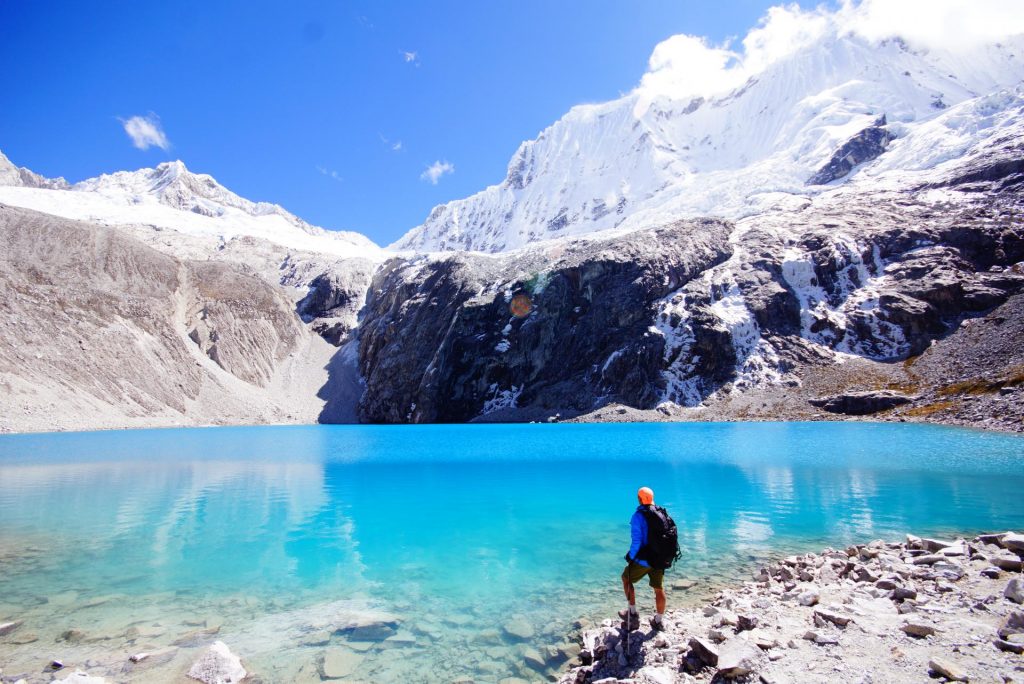
Follow Norio Sasaki’s adventures on Instagram at @sasakinorio.




